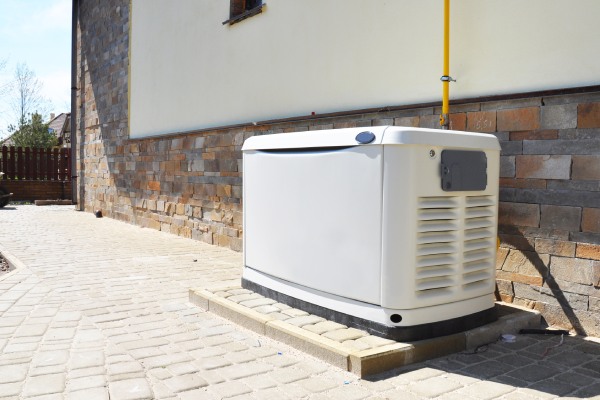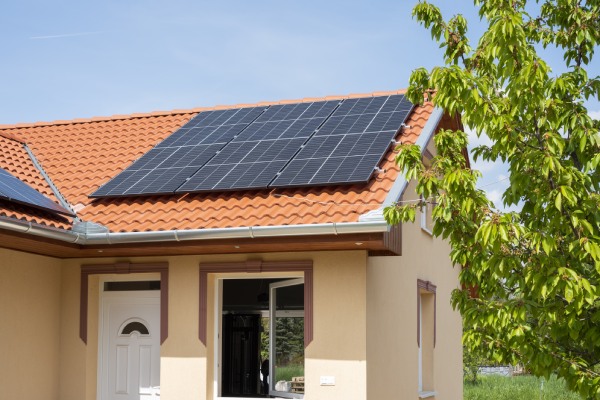Renewable energy sources such as solar power or generators are rising exponentially in Texas. Solar panels and generators are the most prominent options for ensuring a reliable energy supply.
Both solar panels and generators have distinct advantages and considerations, making the choice dependent on various factors, including cost, environmental impact, reliability, and energy needs. This guide compares both options to help you determine the best fit for your Texas home.
Generators: Reliable Backup Power
How Generators Work
Generators are backup power systems that provide electricity during an outage by running on liquid propane, natural gas, or diesel. A standby generator sits outside the home and turns on manually or automatically when it detects an outage.
Pros and Cons of Generators
Pros:
- Lower initial cost ($2,000 – $10,000)
- Immediate and reliable power during outages
- Works regardless of sunlight availability
- Can be easily connected if the home has an existing gas line
Cons:
- Requires ongoing maintenance and fuel refills
- Noisy operation (70 – 90 dB)
- Produces carbon emissions
- Lifespan of 5 – 10 years with regular maintenance
Generators are an effective emergency power solution, but they come with recurring costs and environmental drawbacks.
Solar Panels: A Sustainable Energy Source
How Solar Panels Work
Solar power systems use solar panels to capture sunlight and convert it into electricity. Excess energy is stored in a battery backup system for use when sunlight is unavailable.
Pros and Cons of Solar Panels
Pros:
- Runs on renewable energy, reducing electricity bills
- Federal and state incentives available (26% tax credit in 2025)
- Low maintenance and long lifespan (25+ years for panels, 20+ years for high-quality batteries)
- Quiet operation (25 – 40 dB)
- Increases home value by 3% – 4%
Cons:
- Higher initial cost ($15,000 – $30,000 before incentives)
- Requires professional installation
- Performance depends on sunlight availability
Solar panels provide an eco-friendly and cost-effective energy solution, particularly in sunny states like Texas.
Are Solar Panels Worth It in Texas?
Texas is one of the best states for solar energy due to its abundant sunlight and available incentives. Solar panels can significantly lower electricity bills, provide backup power with battery storage, and contribute to a cleaner environment.
Benefits of installing solar panels in Texas:
- High solar potential: Texas receives an average of 205 sunny days per year.
- Net metering benefits: Excess energy can be sold back to the grid, reducing costs.
- State and federal incentives: Homeowners can take advantage of rebates, tax credits, and financing options.
For homeowners looking for a long-term energy solution, solar panels are a valuable investment.
Cost of Solar Panels in Texas
The cost of installing solar panels in Texas varies based on system size, equipment quality, and available incentives.
Average Costs:
- 5 kW system: $12,000 – $15,000
- 10 kW system: $20,000 – $30,000
- 15 kW system: $30,000 – $45,000
Incentives and Rebates:
- Federal solar tax credit (26% in 2025)
- Texas property tax exemption for solar systems
- Local utility rebates and financing options
Over time, solar panels pay for themselves through energy savings, making them a cost-effective solution in Texas.
Solar Panels vs. Generators Comparison
| Feature | Generators | Solar panels |
|---|---|---|
| Source of energy | Internal combustion engine running on gasoline, propane, diesel, or natural gas | Solar energy – batteries store this energy |
| Cost | $2,000 – $10,000 Regular refueling required |
$15,000 – $30,000 (before incentives) Federal and state tax rebates (up to 26%) Financing programs available |
| Power capacity | High: Needs continuous supply of fuel 5 – 20 kW |
Limited: as long as the sun shines or there is stored energy in batteries 3 – 10 kW |
| Performance | 365 days of the year – when refueled | Excellent in areas like Texas with lots of sunshine |
| Durability | Machine exposed to wear and tear | Stationary panels, inverters, and batteries – long-lasting |
| Noise | Loud while running 70 – 90 dB |
Almost inaudible 25 – 40 dB |
| Installation | Simply Setup | Requires professional installation $5,000 – $10,000 |
| Maintenance | Regular oil changes and filter replacement $150 – $300 per year |
Low maintenance Requires regular cleaning Batteries degrade over time |
| Lifespan | 10,000 hours 5 to 10 years |
High-quality batteries last about 20+ years Solar panels 25 to 30 years |
| Carbon Emissions | High carbon footprint ~1.6 kg CO2 per kWh (diesel) |
Zero emissions |
| Home Value | – No impact | Increase the home value by 3% – 4% |
Consider the best option for your Texas home

Choosing between solar panels or a generator involves careful consideration of several factors:
- Energy Needs and Usage: Assess how much energy your household consumes and identify any peak usage times. This will help you determine the best system to meet your specific energy requirements.
- Local climate and sunlight availability: Evaluate the average sunlight your area receives throughout the year. Locations with consistent sunlight are ideal for solar panels, while areas with frequent cloudy or stormy weather might benefit more from a generator.
- Budget and financial incentive: Consider your budget for initial installation and ongoing maintenance. Also, explore any available federal, state, or local incentives and rebates that could offset your costs.
With more and more households in Texas switching to other energy sources, it is time to consider doing the same. Consider your options, contact Frontline Home Solutions for the best advice on home efficient installations, and make a well-informed decision about a reliable and sustainable energy supply for your home or business.





